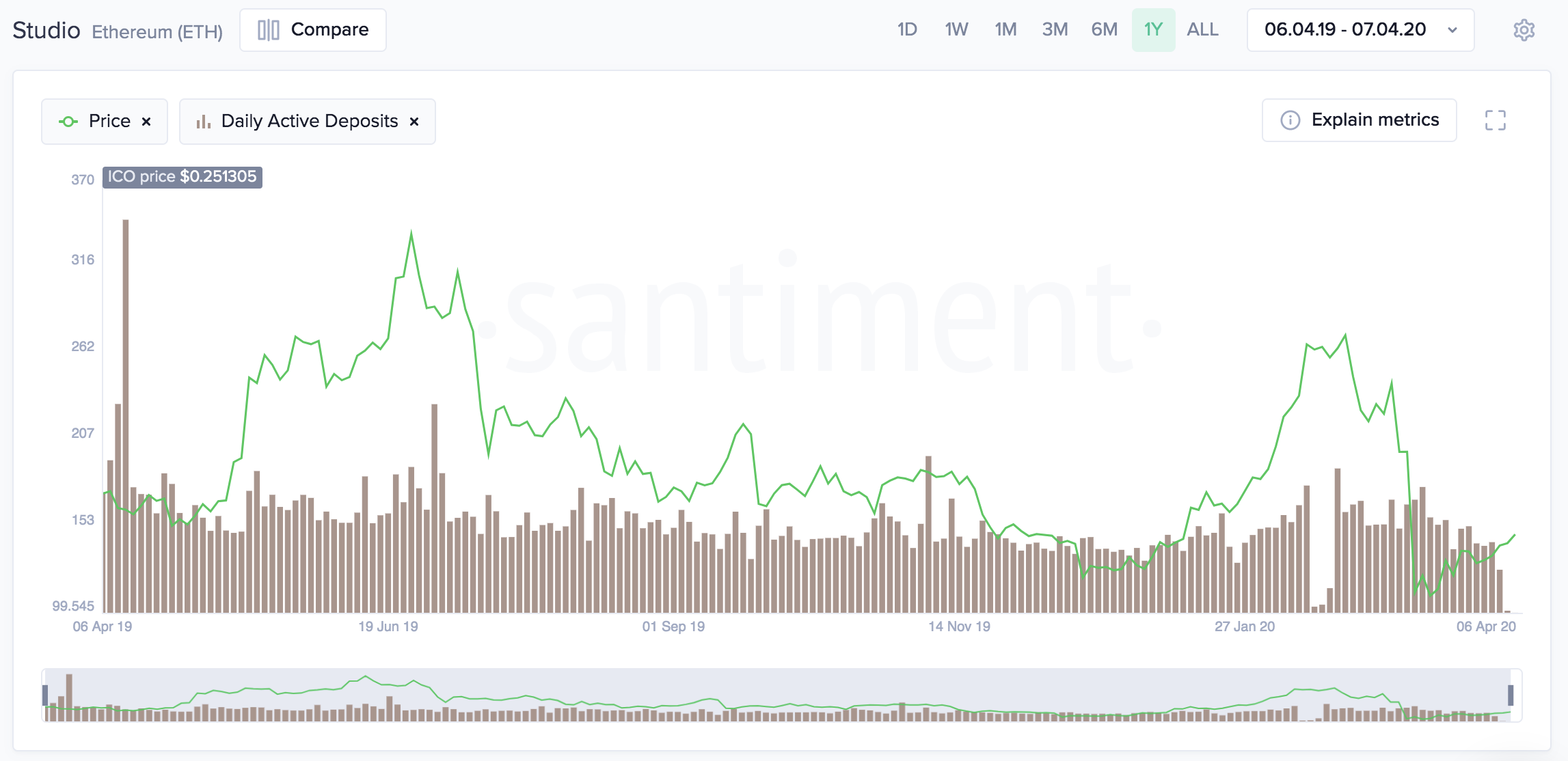Active Deposits
Definition
Active Deposits
Shows the number of unique deposit addresses that have been active on a particular day for a given asset. Refer to a deposit address explanation here

active_deposits metric shows the number of daily active deposits. active_deposits_5m shows the amount of active deposits for a given 5 minutes interval.
Deposit Transactions
Deposit transactions metric shows the total number of all incoming and outcoming transactions involving
deposit addresses on a particular day for deposit_transactions and for a particlar 5 minutes interval for deposit_transactions_5m.
As such, this metric accounts for both user-to-exchange transactions:
- from a personal wallet to a deposit address, and
- from a deposit address to the main exchange wallet.
Deposit-related Transactions is often valuable when used in conjunction with Exchange Inflow -- another one of our metrics -- which shows the total amount of coins moving to exchange wallets on a particular day.
So, for example, an increase in exchange inflow but a plateauing number of deposit-related transactions means that more coins are entering the exchanges, although the number of transactions to the exchanges stayed the same. In other words, the average deposit size has increased.
For an exchange-specific data please refer to that page
Access
The metric is with restricted access.
Measuring Unit
Non-negative number of addresses
Data Type
Frequency
active_depositsdeposit_transactions
active_deposits_5mdeposit_transactions_5m
Latency
Daily Active Deposits has on-chain Latency
Available Assets
SanAPI
1 2 3 4 5 6 7 8 9 10 11 12 13{ getMetric(metric: "active_deposits") { timeseriesData( slug: "maker" from: "2019-05-09T11:25:04.894Z" to: "2019-06-23T11:25:04.894Z" interval: "1d" ) { datetime value } } }
Deposit transactions are available under deposit_transactions and deposit_transactions_5m names.
1 2 3 4 5 6 7 8 9 10 11 12{ getMetric(metric: "deposit_transactions_5m") { timeseriesData( slug: "ethereum" from: "2024-01-01T00:00:00.000Z" to: "2024-01-02T00:00:00.000Z" interval: "1h") { datetime value } } }